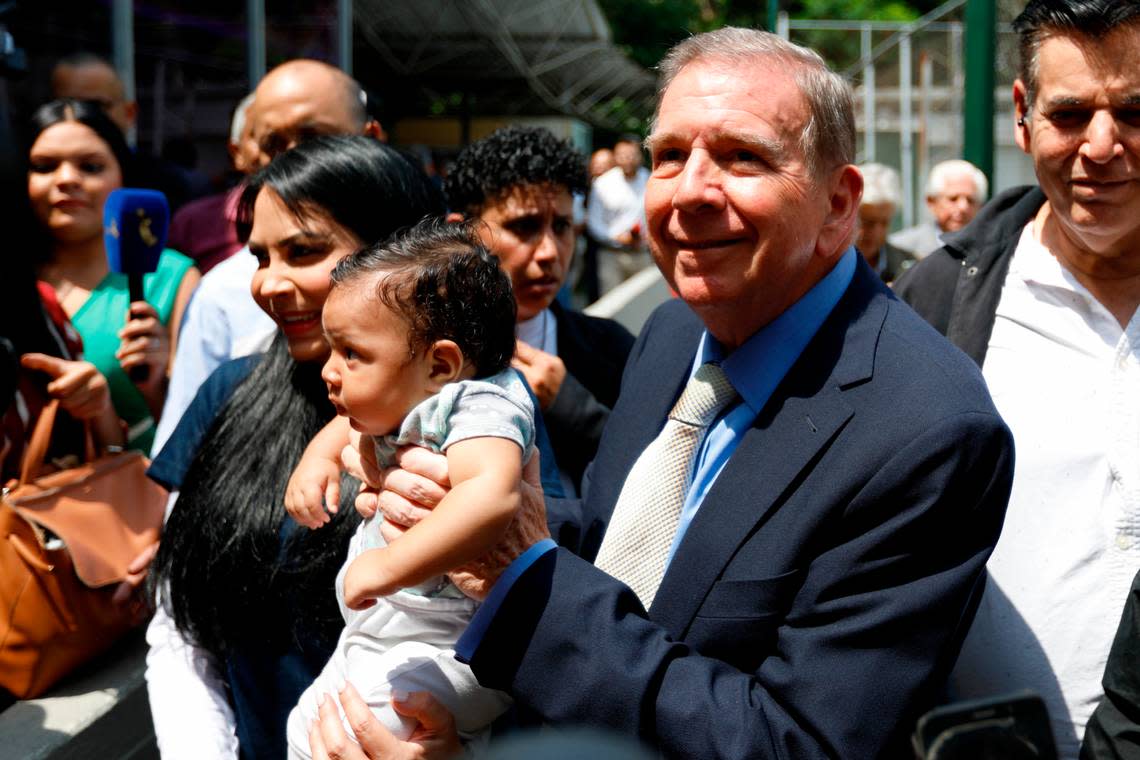Here are the key things to know about Sunday’s presidential election in Venezuela

- Oops!Something went wrong.Please try again later.
- Oops!Something went wrong.Please try again later.
- Oops!Something went wrong.Please try again later.
Venezuelans head to the polls Sunday to elect a new president, in an election where opposition candidate Edmundo González has a signifcant lead in most polls over strongman Nicolás Maduro.
Analysts believe the election may be the the greatest opportunity Venezuelans will have to return the nation to a democratic system after more than 25 years of autocratic socialist rule. But experts warn that the government-controlled National Electoral Council provides few safeguards to guarantee that the vote will be counted fairly.
Read more: Venezuelans head to the polls Sunday in election that could end autocratic socialist rule
Here are the key things to know about Sunday’s vote.
▪ Venezuela has been under socialist rule since late president Hugo Chavez won the presidency in 1998. Nicolás Maduro, 61, Chavez’s handpicked successor, became president in 2013, a few months after a gravely ill Chavez died in Havana.
▪ Edmundo González, 74, is a former Venezuelan diplomat who was virtually unknown in the country until he was suddenly endorsed by opposition leader María Corina Machado, who had won the opposition’s primary with more than 92% of the vote before her candidacy was banned by the regime. Machado and the country’s main opposition political parties publicly united in their support for González. Machado remains the main force behind the opposition’s campaign.
▪ Most credible independent polls give Gonzalez a 30-point-plus lead over Maduro. Frustration over the country’s prolonged economic crisis and the increasingly autocratic rule have persuaded even former supporters of the regime to back Gonzalez, according to the polls..
▪ More than 21 million Venezuelans are registered to vote, but millions of them won’t be able to participate because they are outside the country. More than 7.7 million Venezuelans have fled to other countries in recent years to escape the harsh living conditions at home. None of the estimated 800,000 Venezuelans living in the United States will be able to vote unless they have traveled back to their home country.
▪ Polls open at 6 am and close at 6 p.m. Results are expected to be announced no earlier than the early morning hours Monday and perhaps later.
▪ The regime has severely limited the presence of international observers at the election, allowing mostly representatives of organizations that in the past have shown sympathy towards its socialist revolution. On Friday, the regime stopped a group of former Latin American presidents from entering the country to independently monitor the process as well as a group of European legislators who had hoped to do the same. Among the few independent international observers that will be allowed to observe is the Atlanta-based Carter Center and a four-member United Nationsl mission that will write a report for the Secretary General that is not expected to be made public.
▪ The governments of Brazil and Colombia, whose presidents have traditionally been counted among the friends of the Maduro government, decided not to send observers to the election in what was seen as a sign that they have reservations about the fairness of the process. On Monday, Brazilian President Luiz Inacio Lula Da Silva told reporters that he was alarmed by Maduro’s violent rhetoric — the Venezuelan leader has said there will be “bloodshed” if he loses — and said he should step down if Venezuelans vote against him.
▪ Venezuela, which has the largest proven reserves of oil in the world, once had one of the highest standards of living in Latin America, but today has one of the lowest, with poverty levels rivaling those of Haiti. The country’s GDP has shrunk by close to 80% since Maduro first became president in 2013. Experts blame the economic collapse rampant corruption and mismanagement.
▪ Maduro and top members of his regime face several federal indictments in the United States, charging them with running the so-called Soles Cartel and turning Venezuela into a drug-trafficking state.

